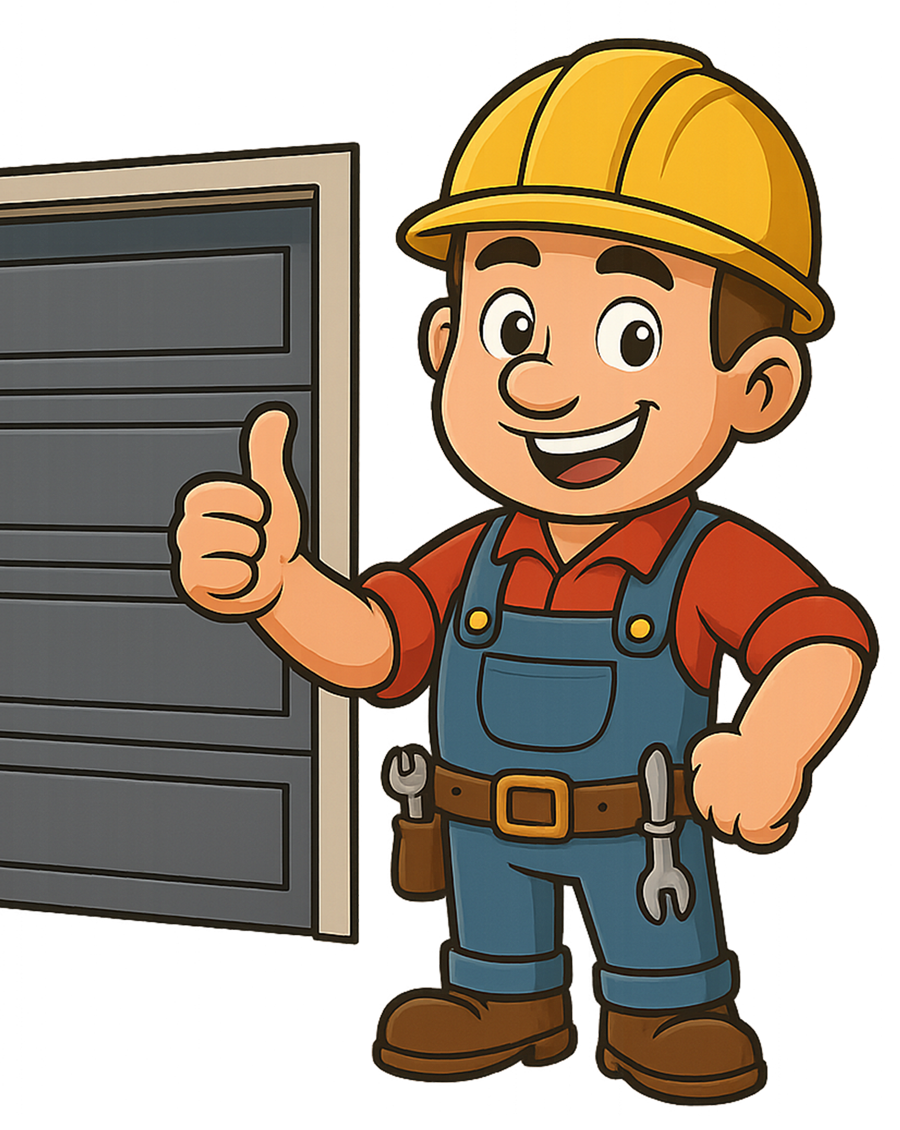Broken Garage Door Rollers
Broken or worn-out garage door rollers can cause your door to shake, squeak, or even go off track, making daily use frustrating and potentially dangerous. While it might seem like a simple fix, replacing rollers requires disassembling parts of the door system and safely managing its weight and tension. A professional garage door repair company has the training, tools, and experience to handle the job correctly, ensuring your rollers are replaced without causing further damage to the tracks, cables, or door panels.
Hiring a professional also means the job gets done efficiently and thoroughly. Technicians can quickly spot related issues—like bent tracks or loose hardware—that may be contributing to roller problems. By addressing everything in one visit, they help prevent future breakdowns and extend the life of your entire garage door system. Plus, professional services often come with warranties, giving you added peace of mind that your repair is done right the first time.
BROKEN GARAGE DOOR ROLLERS
When your garage door rollers become worn, broken, or noisy, it’s important to have a trained professional handle the repair. Rollers play a key role in the smooth and safe operation of your door, and fixing or replacing them often involves working with heavy components and high-tension systems. A certified technician has the expertise to perform the repair safely and correctly, helping to prevent further damage to your door and avoid potential injuries. Professional service also ensures long-lasting results and can improve the overall performance of your garage door.
To help you better understand roller issues and what to expect during a repair, we’ve included a helpful FAQ section below. These frequently asked questions cover common symptoms, causes of roller failure, repair timelines, and more—so you can feel informed and confident when it’s time to schedule service.
Garage door rollers are small wheels that run along the metal tracks on either side of your garage door. They’re attached to the door’s panels and help guide the door smoothly as it opens and closes. Rollers may be made of steel, nylon, or plastic, and they rotate on ball bearings or shafts. Their condition directly affects how quietly and efficiently your garage door operates.
When rollers wear out or become damaged, your garage door may start to jerk, squeak, or come off its track. Worn rollers can also cause stress on other components like the opener, hinges, or track system. That’s why keeping them in good condition is essential—not just for convenience, but also for extending the lifespan of your entire garage door system.
Common signs of bad rollers include loud squeaking or grinding noises when the door moves, visible cracks or flat spots on the rollers, and jerky or shaky door movement. In some cases, the door might even come off its track or feel unusually heavy when operating manually. If the rollers no longer spin smoothly or look rusted and worn, they likely need to be replaced.
It’s a good idea to inspect your rollers visually a few times a year or have a professional include them in routine maintenance checks. Catching roller issues early can prevent more serious problems, such as track damage or door misalignment, which are more expensive to fix. If you’re unsure, a technician can diagnose the issue and recommend the right solution.
While it’s technically possible to replace garage door rollers on your own, it’s not usually recommended—especially for the rollers attached to the bottom brackets. These brackets are under high tension due to the door’s cables and springs, and attempting to remove them without proper training can result in serious injury. Additionally, improperly installed rollers can cause the door to function poorly or become dangerous to operate.
Professional technicians have the tools and experience to safely replace all types of rollers, including those in high-risk areas. They also know how to realign the tracks and inspect for any hidden damage during the process. Having a pro handle the repair ensures your door will operate smoothly, safely, and quietly once the job is done.
The lifespan of garage door rollers depends on their material and how often you use your garage door. Nylon rollers typically last 10–15 years with regular use, while steel rollers may last longer but tend to be noisier. Lower-quality plastic rollers usually wear out faster and may need replacing within 2–5 years. If you use your garage door as a primary entryway, more frequent inspections and replacements might be necessary.
It’s also important to consider preventive maintenance. Regular lubrication and tune-ups can help extend the life of your rollers and other components. A professional can evaluate their condition during a routine service call and let you know if it’s time for a replacement. Keeping your rollers in good shape helps avoid sudden breakdowns and keeps your door running like new.
Normal wear and tear is the most common cause of roller damage. Every time your garage door opens or closes, the rollers are hard at work. Over time, the constant movement and weight of the door take their toll, especially if the rollers aren’t properly lubricated or if they’re made from lower-quality materials.
Other causes include dirt and debris buildup in the tracks, misaligned tracks putting pressure on the rollers, and exposure to moisture that causes rust on metal parts. Lack of routine maintenance is a major contributor as well. Regular inspections, cleaning, and lubrication can significantly extend the life of your rollers and help you avoid costly repairs.
For a professional technician, replacing all the rollers on a standard residential garage door typically takes about 1 to 2 hours. The time depends on the size and type of door, how many rollers need replacing, and the condition of related parts like tracks or hinges. If the rollers are part of a broader maintenance service, the job may take a little longer to ensure everything is properly aligned and functioning.
Doing it yourself can take significantly longer—especially without the right tools or experience. It can also be risky if you attempt to remove parts under tension. Hiring a professional ensures the job gets done quickly, safely, and correctly, so you can get back to using your garage without stress or delays.




